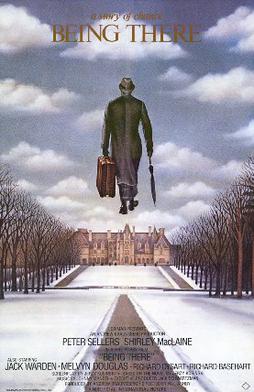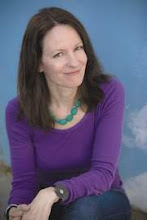There are first lines, and there are masterful first lines.
The best opening lines of a novel or short story do many things at once: a first line may intrigue you, create tension or hint at a conflict, say something about a character. A first line is beautiful or lyrical or witty--always memorable.
Here are a few of my favorites:
Many years later, as he faced the firing squad, Colonel Aureliano Buendia was to remember that distant afternoon when his father took him to discover ice.
--
One Hundred Years of Solitude, Gabriel Garcia Marquez
[It's famous for a reason. I'm always amazed how that barbed hint about the firing squad adds suspense, hooks me, until I find out what happens.]
Riding up the winding road of St. Agnes Cemetery in the back of the rattling old truck, Francis Phelan became aware that the dead, even more than the living, settled down in neighborhoods.
--
Ironweed, William Kennedy
[Francis is, as he refers to himself, a "bum"--a homeless alcoholic, once a star baseball player, who now digs graves to earn money for his next drink.The Catholic graveyard has large marble headstones for the wealthy families, and unmarked for the poor.]
Scarlett O'Hara was not beautiful, but men seldom realized it when caught by her charm as the Tarleton twins were.
--
Gone With the Wind, Margaret Mitchell
[I remember being shocked when I read that first line at 14-- Scarlett O'Hara was not beautiful? Huh?]
In the town, there were two mutes and they were always together. - Carson McCullers,
The Heart is a Lonely Hunter
[Love that line-- that confident narrator. Those characters. Love that novel.]
The Grandmother didn't want to go to Florida.-- Flannery O'Connor, "A Good Man is Hard to Find."
[The best short story written in English. I'm not partial-- just because O'Connor was a southern writer. That simple line is sharp as a blade and will bring about the doom of the family, put them at the mercy of a serial killer, a nihilist, [the Misfit shows no mercy] who, as he coolly threatens the grandmother, will espouse his theory-- ("Jesus was the only One that ever raised the dead," The Misfit continued, "and He shouldn't have done it. He thrown everything off balance.")-- and bring about the grandmother's moment of grace....but you knew that, right?]
It was a bright cold day in April, and the clocks were striking thirteen. - George Orwell,
1984
[Love that matter of fact craziness-- the world is off it's rocker, and has been for some time. We get that right away.]
They shoot the white girl first. - Toni Morrison,
Paradise
['nough said.]
It was the best of times, it was the worst of times, it was the age of wisdom, it was the age of foolishness, it was the epoch of belief, it was the epoch of incredulity, it was the season of Light, it was the season of Darkness, it was the spring of hope, it was the winter of despair. - Charles Dickens,
A Tale of Two Cities
[Panoramic wide-screen line, filled with big ideas and a narrator who takes you by the hand.]
Through the fence, between the curling flower spaces, I could see them hitting. - William Faulkner,
The Sound and the Fury
[Faulkner is such a visual writer, when I read him I feel I'm in a vivid dream--and this line plunges one in the story.]
We started dying before the snow, and like the snow, we continued to fall. - Louise Erdrich,
Tracks
[Oh, that gentle play on words, that brutal meaning: 'to fall' like the snow, like death.]
I was born twice: first, as a baby girl, on a remarkably smogless Detroit day in January of 1960; and then again, as a teenage boy, in an emergency room near Petoskey, Michigan, in August of 1974. - Jeffrey Eugenides,
Middlesex
[You have to read this, after that opening.]
It was a queer, sultry summer, the summer they electrocuted the Rosenbergs, and I didn't know what I was doing in New York. - Sylvia Plath,
The Bell Jar
[Both gorgeous and foreboding as only Plath can do.
]
They say when trouble comes close ranks, and so the white people did. - Jean Rhys,
Wide Sargasso Sea
[The suffering caused by colonialism is in that first line.]
 In the traditional meaning: "apprenticeship" became prominent in medieval Europe with the emergence of the craft guilds. The standard apprenticeship lasted seven years, from age 14 to 21, for example. [Back then you died at 40, so there wasn't time for career burnout.]
In the traditional meaning: "apprenticeship" became prominent in medieval Europe with the emergence of the craft guilds. The standard apprenticeship lasted seven years, from age 14 to 21, for example. [Back then you died at 40, so there wasn't time for career burnout.]
























